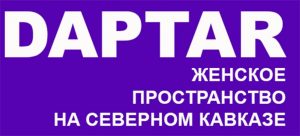
 The protracted legal proceedings surrounding the case of Elizaveta Aliyeva’s kidnapping are nearing their completion. The prosecution has requested six years in a maximum-security prison for the defendant. Daptar revisited the story to report on the trial.
The protracted legal proceedings surrounding the case of Elizaveta Aliyeva’s kidnapping are nearing their completion. The prosecution has requested six years in a maximum-security prison for the defendant. Daptar revisited the story to report on the trial.
On 9 July 2015, Elizaveta Aliyeva and her husband were kidnapped from their home in Nazran, a town in Ingushetia. Armed men burst into their yard, grabbed Elizaveta, hit her several times, and dragged her into a car, where her husband had already been taken. Their attackers were Mukharbek Yevloyev — the husband of Elizaveta’s sister, Marem — and his relatives. Not long before this, Marem had run away, taking her three children with her, because of repeated beatings from her husband. Yevloyev then kidnapped Elizaveta to find out where Marem was hiding.
Elizaveta was fortunate: neighbours alarmed by the commotion called the police and reported the abduction. The police began pursuing the criminals’ vehicle, and Elizaveta managed to escape. Elizaveta and her husband immediately filed a statement about the kidnapping, but the attackers were not arrested. The police took no measures whatsoever while the trail was hot, and it was nearly half a year later that they began investigating the case.
Two months after the kidnapping, Marem Aliyeva was murdered. Elizaveta is certain that Yevloyev was involved. On 19 September 2015, Marem had called her sister and told her about new beatings and threats from her husband. After this, the woman’s telephone stopped responding and she disappeared without a trace. Elizaveta immediately went to the police, but Yevloyev’s relatives started putting pressure on her to retract her statement. A grenade was even thrown into Elizaveta’s yard. Police did not even begin to investigate this incident, in fact, the officer who came to look into the matter said it was no grenade, just a firecracker.
Nevertheless, a criminal case was opened into the murder of Marem in November — although the prosecutor’s office has still not charged anyone. Moreover, there are not even any official suspects. Daptar reported on the fate of Marem in detail.
With the help of the Russian Justice Initiative organisation, it was finally possible to implicate Mukharbek Yevloyev in Elizaveta’s abduction. In January last year, he was placed under house arrest, and his relative, Murat Paragulgov, who participated in the crime, was taken into custody. They were charged with the armed abduction of Elizaveta and her husband.
In my experience, there has never been an instance when the victim of such a serious crime has had to hide during the court proceedings.
Elizaveta’s fears have not subsided. ‘The situation has turned out to be very extraordinary’, says Aliyeva’s lawyer, Vitaly Zubenko. ‘In my experience, there has never been an instance when a victim of such a serious crime has had to hide during the court proceedings.’
The witness protection service provided to Elizaveta and her family could not save the Aliyevs from threats from the defendants’ relatives. The kidnapper enjoys considerable influence in society and has connections with law enforcement agencies; thus, there were many willing to cover up the case. Thus, Elizaveta had to go to Moscow with her children and later leave the country. Several witnesses to the crime who supported Elizaveta have also left Ingushetia.
Elizaveta’s husband, on the contrary, remained in the republic. He renounced the family and testified in court that there had been no abduction. The man submitted a complaint asking to be recognised as a victim in this case.
When in the summer of 2016 the hearings began in the Magas District Court, Elizaveta herself was already in Moscow and gave her testimony by conference call from the Zamoskvoretsky Court.
Her lawyer, Vitaly Zubenko comes to the sessions from Stavropol. It was too dangerous for local lawyers to join the case.
‘Naturally, all kinds of pressure was exerted on participants in the process — and three criminals are still in hiding. In principle, we saw that several police officers were put under certain pressure. In the preliminary investigation, they vividly described the situation surrounding the kidnapping, but in court they “softened their tone somewhat”’, says Zubenko.

‘In general, I sensed they do not want to see us in court’, recalls the lawyer. ‘The victim is not — and it would be preferable if her representative were not in the process either. So, for instance, the defence tried for a long time to obtain transcripts for court sessions in which Aliyeva’s side was unable to participate.’
At some point, they began dragging out the process: arguments which should have started late last year were postponed several times. Elizaveta’s lawyer began to worry that the criminals would avoid punishment altogether. On the part of the prosecution, a degree of passivity was observed, and Yevloyev’s lawyers focused heavily on the fact that he was seriously ill. Milder preventive measures were also chosen for him because of his diabetes, though this illness does not preclude serving prison time, emphasises Zubenko.
Finally, on 7 February the prosecutor appeared in court and asked that Mukharbek Yevloyev and Murad Paragulgov each be sentenced to 6 years in a maximum security penal colony, as well as paying a fine of ₽100,000 ($1,700).
We doubted down to the last minute these words would ever escape the lips of the state prosecutor: crime proven’, says the lawyer.
The aggrieved party is dissatisfied with the prosecution’s case, and considers the proposed penalty excessively lenient. Elizaveta’s lawyer draws attention to the fact that the defendants did not recognise their guilt, which means they have not tried to make amends or repent; rather, their relatives put pressure on the victim. The penalty for such a charge is 5 to 12 years’ imprisonment. They apparently requested very close to the minimum for the criminals.
Experience shows that if a state prosecutor asks for prison time, the court will grant this request.
‘Of course, we still do not know how the process will end although experience shows that if a state prosecutor asks for prison time, the court will grant his request. But my client is unhappy that they asked for only 6 years for him. She has not forgiven the accused. We shouldn’t forget that Yevloyev was likely involved in the murder of Marem’, says Zubenko.
Elizaveta Aliyeva even approached Yevloyev’s relatives requesting that they tell her what happened to her sister, and if she had been killed, offered not to press charges if they would only allow her to bury her properly. The family did not respond to her request. However, this is understandable because if a body were found, the murder would have to be investigated, so Yevloyev found himself between a rock and a hard place, says the defence lawyer.
He points out that the Russian Justice Initiative intends to file a complaint at the European Court of Human Rights, because the Russian authorities are not taking effective measures to investigate this crime.
‘It is also an anomalous situation when such a serious crime still has not been solved after two years, even though the circumstances of her disappearance and then her murder are more than obvious: she went missing from the family home after repeated scandals, and blood-stained hair and signs of a struggle were found at the scene. Who could have killed her? It’s a rhetorical question’, thinks Zubenko.
Yuliya Suguyeva






